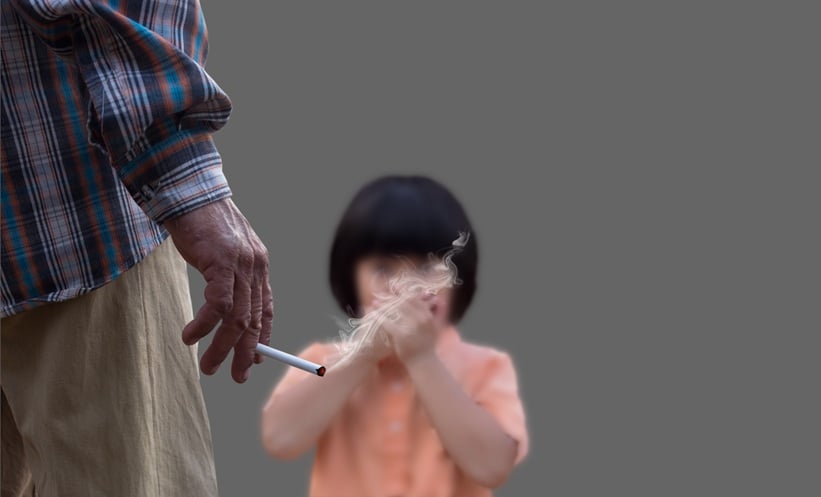A NEW longitudinal study has found that paternal passive smoke exposure before puberty is associated with impaired lung function trajectories in their children, highlighting multigenerational consequences of tobacco smoke.
Early smoke exposure in fathers shapes offspring lung development
Researchers analysed data from 890 father-offspring pairs in the Tasmanian Longitudinal Health Study, with offspring undergoing spirometry at six time points from ages 7–53 years. Fathers reported passive smoke exposure before age 15 years. Lung function trajectories, assessing forced expiratory volume in 1 second (FEV1), forced vital capacity (FVC), and FEV1/FVC ratios, were linked to paternal prepubertal passive smoke exposure. Children of fathers with early passive smoke exposure were more likely to follow below-average FEV1 trajectories (adjusted multinomial odds ratio [aMOR]: 1.56; 95% CI: 1.05–2.31) and early low-rapid decline FEV1/FVC trajectories (aMOR: 2.30; 95% CI: 1.07–4.94), suggesting compromised airway development and increased long-term risk of chronic obstructive pulmonary disease.
Interactions with childhood smoke exposure and respiratory illnesses
The negative association was stronger in children who were themselves exposed to passive smoke during childhood (aMOR: 2.36; 95% CI: 1.34–4.13). Analyses indicated that some effects were partly mediated through paternal and offspring smoking habits and childhood respiratory illnesses, though each factor contributed less than 15% to the overall association. This shows that prepubertal smoke exposure in fathers exerts independent effects on lung health across generations, beyond direct exposure or later smoking behaviours.
Implications for public health and prevention
These findings emphasise that tobacco smoke has multigenerational impacts, affecting not only the individual but also their future children’s respiratory health. Early-life interventions to reduce passive smoke exposure, especially among boys before puberty, could prevent long-term adverse lung outcomes in subsequent generations. Public health strategies should incorporate family-wide approaches to limit smoke exposure and protect long-term lung health.
This study adds to growing evidence that prepubertal environmental exposures in fathers can shape the health trajectory of their offspring, particularly in relation to lung development and risk of chronic respiratory disease.
Reference
Liu J et al. Paternal prepubertal passive smoke exposure is related to impaired lung function trajectories from childhood to middle age in their offspring. Thorax. 2025; DOI:10.1136/thorax-2024-222482.








